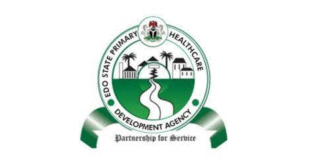Canada’s Move to Recognize Palestine at the UN Sparks Diplomatic Tensions
Canada has taken a significant step in its foreign policy by announcing plans to officially recognize the State of Palestine at the United Nations General Assembly meeting in September. This decision, revealed by Prime Minister Mark Carney during a press conference on Wednesday, marks a shift in the country’s stance and adds to the growing pressure on Israel amid the deteriorating humanitarian situation in Gaza.
This move aligns with similar actions from several Western allies. France recently confirmed its intention to recognize a Palestinian state, while the United Kingdom has indicated it will do the same if the ongoing hostilities in Gaza are not brought to an end before the UN meeting. These developments reflect a broader trend of international concern over the conflict and its impact on civilians.
Carney highlighted the dire conditions in Gaza, particularly the worsening famine, as a key factor behind Canada’s decision. He stated that the two-state solution is becoming increasingly unattainable due to the current circumstances.
“The prospect of a Palestinian state is literally receding before our eyes,” Carney said. “Canada condemns the fact that the Israeli government has allowed a catastrophe to unfold in Gaza.”
The Canadian government’s decision was also influenced by assurances from the Palestinian Authority, which represents the State of Palestine at the UN. The Authority has committed to implementing governance reforms and holding general elections in 2026, with a clear exclusion of Hamas from participating in the process.
These announcements from some of Israel’s traditional allies underscore the rising frustration among the international community regarding Tel Aviv’s restrictions on aid entering Gaza. Humanitarian organizations have raised alarms as global hunger monitors warn of an impending famine in the territory.
Recent reports from the Gaza Health Ministry indicate seven additional deaths linked to hunger on Wednesday, including a two-year-old girl with pre-existing health conditions. Meanwhile, the Hamas-controlled government media office claimed that Israeli forces killed at least 50 people in three hours as residents rushed for food from incoming UN aid trucks in northern Gaza.
In response to Canada’s announcement, Israel, supported by its closest ally, the United States, rejected the remarks. The Israeli Foreign Ministry criticized the Canadian government’s position, stating that it rewards Hamas and undermines efforts to achieve a ceasefire in Gaza and secure the release of hostages.
“Changing the position of the Canadian government at this time is a reward for Hamas and harms the efforts to achieve a ceasefire in Gaza and a framework for the release of the hostages,” the ministry said.
Israeli Prime Minister Benjamin Netanyahu had previously expressed similar criticisms of France and the UK following their announcements. This reaction highlights the deepening rift between Israel and some of its long-standing allies, as the international community continues to grapple with the complex and evolving situation in Gaza.
 Info Malang Raya Its All About World News
Info Malang Raya Its All About World News



